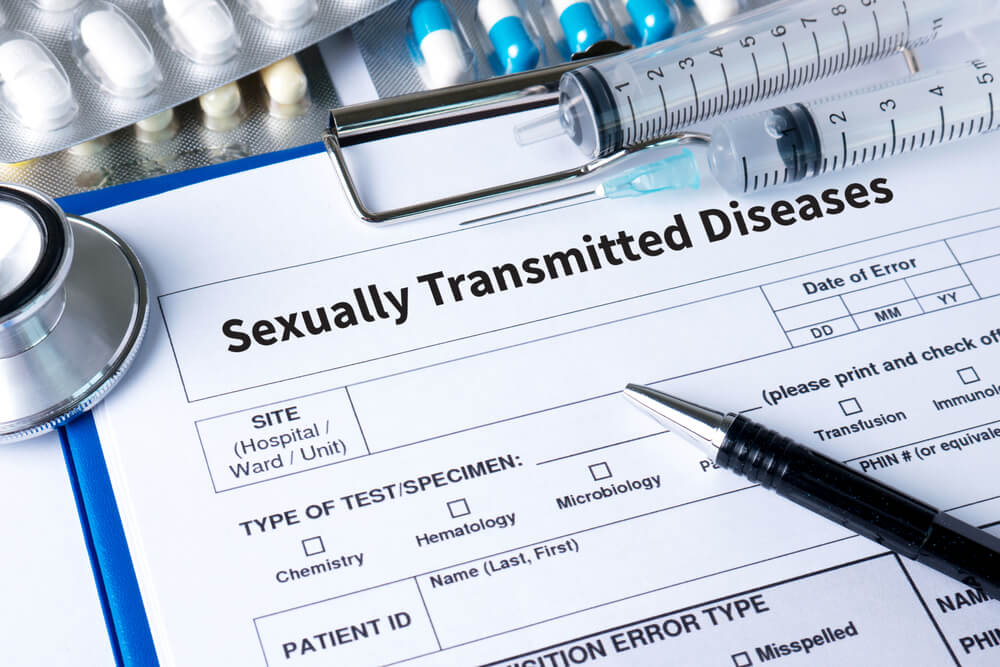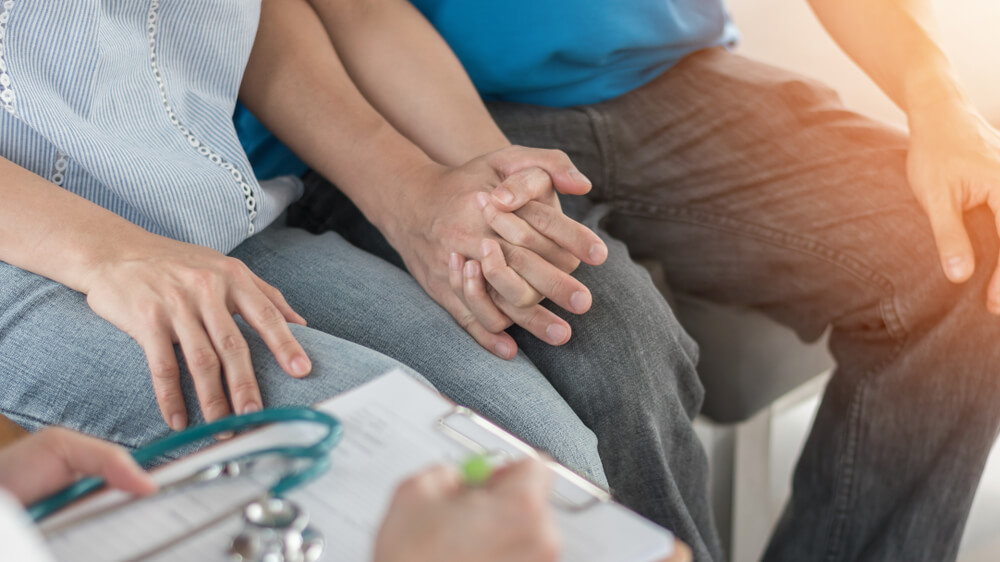Before starting a family, it’s always good to consult with a healthcare specialist and have a checkup to ensure you are free of any sexually transmitted diseases or STDs. The truth is, STDs and pregnancy are a recipe for disaster. This article outlines and explains the most important facts about STDs and pregnancy, such as the possible risk factors and prevention methods against diseases. If you are looking for expert advice on STDs and pregnancy, don’t hesitate to contact us for professional support and treatment.
So, can you get pregnant with an STD? What happens when STDs and pregnancy are involved? Find out below.
Why Do I Need to Have Regular Checkups?
Fortunately, there are some ways you can manage the symptoms and live normally. If you are sexually active, we recommend visiting your healthcare expert at least once every year. If you have more sexual partners, you share IV or intravenous needles, or if you don’t practice safe sex by using condoms during sexual intercourse, we advise getting a checkup at least every six months. The good news is that most sexually transmitted diseases such as chlamydia, gonorrhea, syphilis, and trichomoniasis are curable when detected early. On the flip side, illnesses like herpes, HIV, hepatitis B, and the Human Papilloma Virus (HPV) aren’t.
Before discussing STDs and pregnancy, it’s also important to notice some of the most common symptoms you may have a sexually transmitted disease. Some of these signs include:
- Pain during intercourse
- Dark-colored urine
- Painful bowel movements or urination
- Itching around the anus, vagina, or the vulva
- Unusual vaginal discharge
- Foul-smelling discharge or vaginal odor
With men, some signs may include:
- Sores, blisters, or bumps on the genitals or the penis
- Pain during ejaculation
- Frequent need to urinate
- Pain or burning sensation during urination
- Abnormal discharge from the penis and foul-smelling odor
On top of these symptoms, a person with a sexually transmitted disease may feel tired without explanation, have swollen lymph glands, and experience a fever.
Should I Get Tested for an STD if I Want to Start a Family?

Yes, when it comes to STDs and pregnancy, we insist you do what’s best for you and your child’s future and get tested. You should still get tested if you are already pregnant, as early detection is the best way to treat STDs. You will want to get tested for HIV, syphilis, hepatitis B, but gonorrhea and chlamydia is also recommended, especially if you haven’t visited your OB-GYN in a long time.
STD During Pregnancy: How Can it Affect My Child?
Having an STD while pregnant shouldn’t be taken lightly. In many cases, an undiagnosed STD can cause severe complications for both the mother and the developing baby. Unfortunately, the mother can pass on an STD during pregnancy to the unborn baby(such as HIV and syphilis). In addition, other STDs such as genital herpes and chlamydia can infect the child as it’s being born. In essence, an STD during pregnancy can cause many complications such as premature birth, low birth weight, and premature rupture of membranes (with untreated gonorrhea). Moreover, an STD during pregnancy can cause a miscarriage.
STD during pregnancy can be especially dangerous in the case of hepatitis B. A baby born to a mother with this STD has more than a 90% chance of developing a chronic case of hepatitis B if they are not appropriately treated.
Can You Get Pregnant With an STD?
Yes, women can get pregnant with a sexually transmitted disease. STDs don’t have noticeable symptoms in many cases, so the disease goes unnoticed.
So, can you get pregnant with an STD? Absolutely, but if you visit your OB-GYN, they may advise preconception STI testing. This way, any infections that can be cured by medication such as chlamydia and gonorrhea are treated prior to getting pregnant.
Unfortunately, having an STD while pregnant is relatively common, as people regularly fail to visit a healthcare professional. If you are looking for a reliable expert to guide you through the entire process of STD during pregnancy, reach out to us for professional advice and treatment.
Can I Get Treated for During Pregnancy?
Having an STD while pregnant can cause complications, as we explained before. Luckily, depending on the type of sexually transmitted disease, you can receive treatment during your pregnancy. For example, if you are diagnosed with trichomoniasis, BV, gonorrhea, syphilis, or chlamydia, your doctor will recommend pregnancy-safe antibiotics.
However, virus-caused STDs such as hepatitis B, HIV, and genital herpes are incurable. Antiviral medication may still be possible with an STD while pregnant and getting treatment for some of these virus-caused illnesses. Alternatively, your doctor will recommend preventative measures to reduce the risk of passing the STD to the baby.
How Can I Lessen My Chances of Getting an STD During Pregnancy?
The number only best way to prevent sexually transmitted diseases is to refrain from oral, vaginal, or anal sex. However, if you are having regular sex, you can lower the chances of transmitting a disease by:
- Properly using high-quality condoms
- Being in a mutually monogamous relationship
- Having sexual intercourse with someone who has also tested negative for any STDs
Some people prefer to use dental dams, internal condoms, or nitrile or latex gloves. However, keep in mind some of these methods are not effective if you or your sexual partner are experiencing “flare-ups,” such as in the case of genital herpes. The reason being is that genital herpes is highly contagious during an outbreak. Therefore, if you or your partner have an outbreak, a condom will not help prevent the STD. In this case, the best thing to prevent disease is to refrain from sex until fully healed.
STDs and Breastfeeding: Are there any Risks?
Some sexually transmitted diseases can impact breastfeeding, while others don’t. For example, mothers with HIV mustn’t breastfeed, as they can pass on the virus to the child. On the flip side, you can breastfeed if you have HPV, gonorrhea, or chlamydia.
In some cases, women may have herpes or syphilis outbreaks on their areola and nipples. With herpes or syphilis, you will need to be especially careful. Women with these STDs may breastfeed, but only if they ensure that the pumping equipment or a baby does not touch a sore. We recommend waiting for the sores to heal before breastfeeding to stay safe.
Am I At Risk of an STD During Other Forms of Sex?

Some forms of sex don’t carry any risk of sexually transmitted diseases. For example, some couples enjoy “dry humping” or “grinding” fully clothed and masturbating. As long as you or your partner ensure that no sexual fluids get into or on the genitals or the mouth, you are safe. Other lower-risk sexual activities include the use of sex toys, oral sex, and kissing. However, it’s crucial to remember that you can still get certain diseases with these activities. Overall, we advise always practicing safe sex.
Reach Out to Us Today
Are you ready to take full control of your reproductive health and start a family? Or perhaps you want to educate yourself on STDs and get the best treatment possible? Whatever bothers you, we’re here to help. Book an appointment today with Dr. David Adler and the team.


